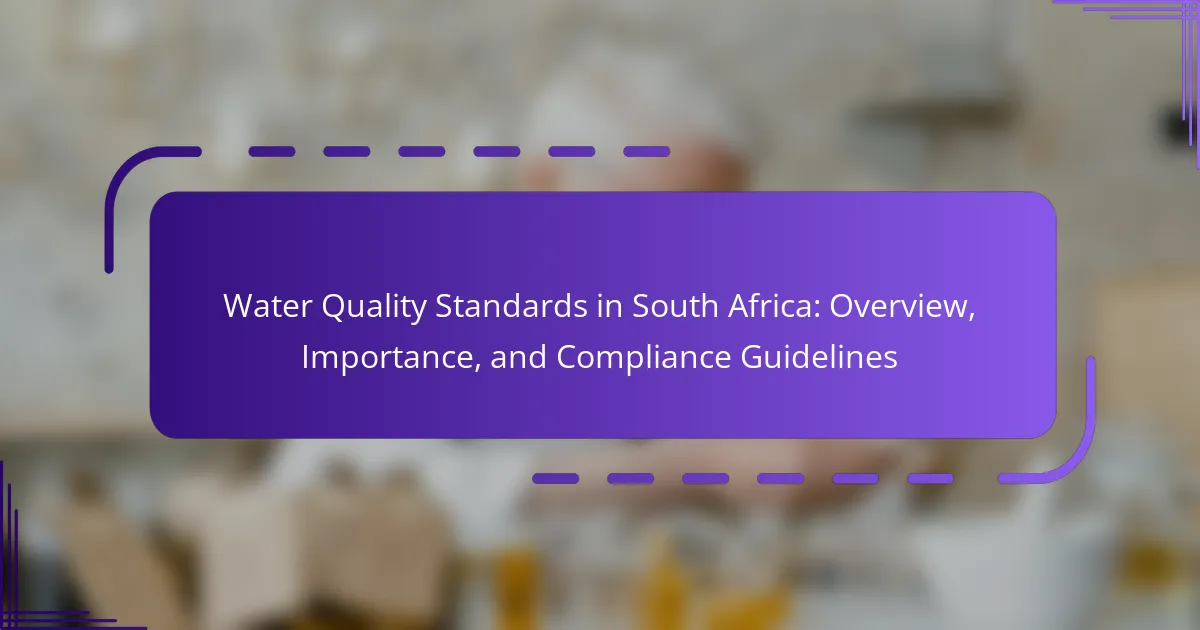Water Quality Standards in South Africa are regulatory benchmarks established by the South African National Water Act of 1998, aimed at safeguarding human health and the environment. These standards encompass various chemical, physical, and biological parameters, with specific limits set for pollutants such as heavy metals and pathogens. The Department of Water and Sanitation is […]
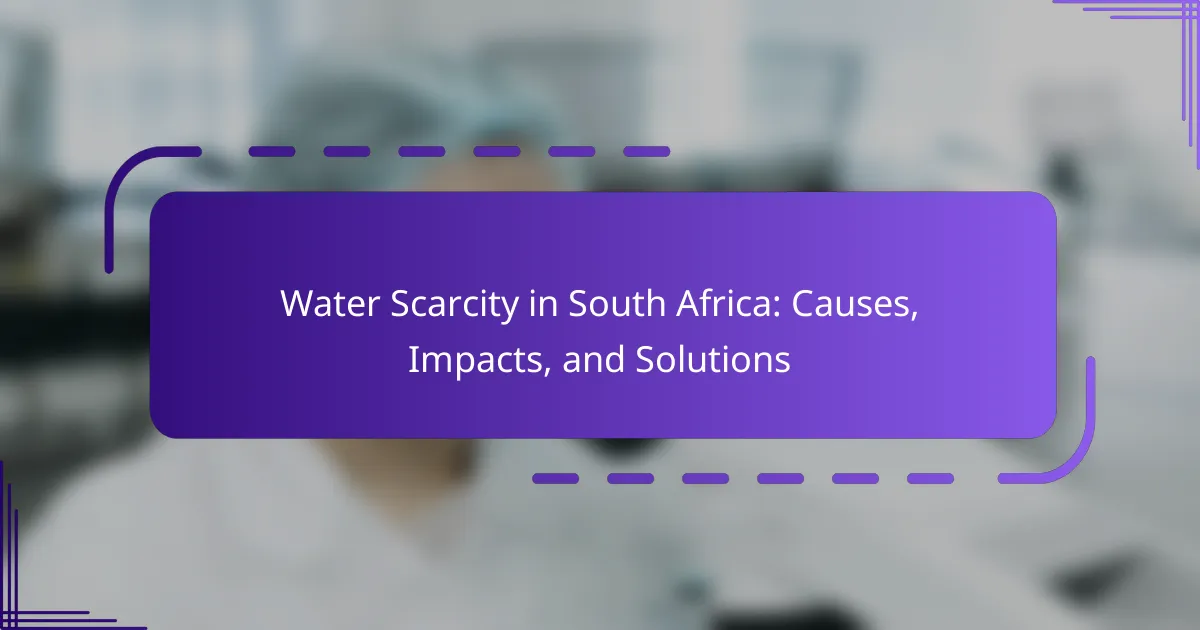
Water Scarcity in South Africa: Causes, Impacts, and Solutions
Water scarcity in South Africa is characterized by the insufficient availability of fresh water necessary to meet the demands of its population and agricultural sector. Contributing factors include climate change, population growth, and inefficient water management practices, leading to approximately 14 million people facing water shortages. The impacts of this crisis are profound, resulting in […]
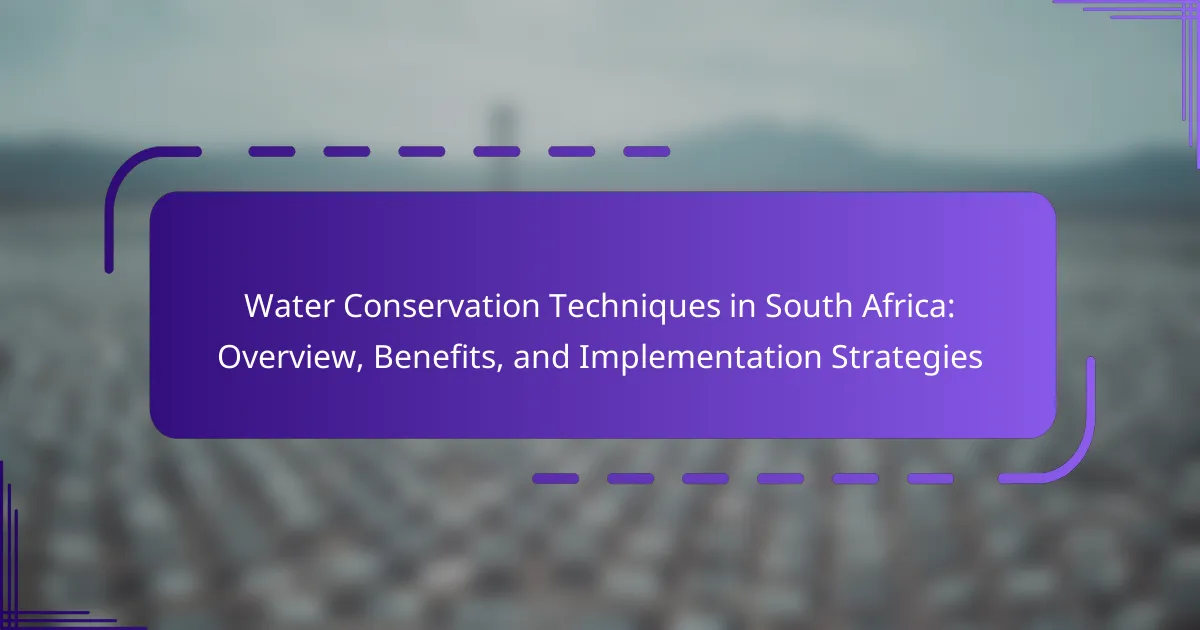
Water Conservation Techniques in South Africa: Overview, Benefits, and Implementation Strategies
Water conservation techniques in South Africa are critical in addressing the country’s severe water scarcity challenges, exacerbated by prolonged droughts, urbanization, aging infrastructure, pollution, and climate change. Key methods include rainwater harvesting, greywater recycling, and efficient irrigation systems like drip irrigation, which can significantly reduce water usage and enhance agricultural productivity. The implementation of these […]
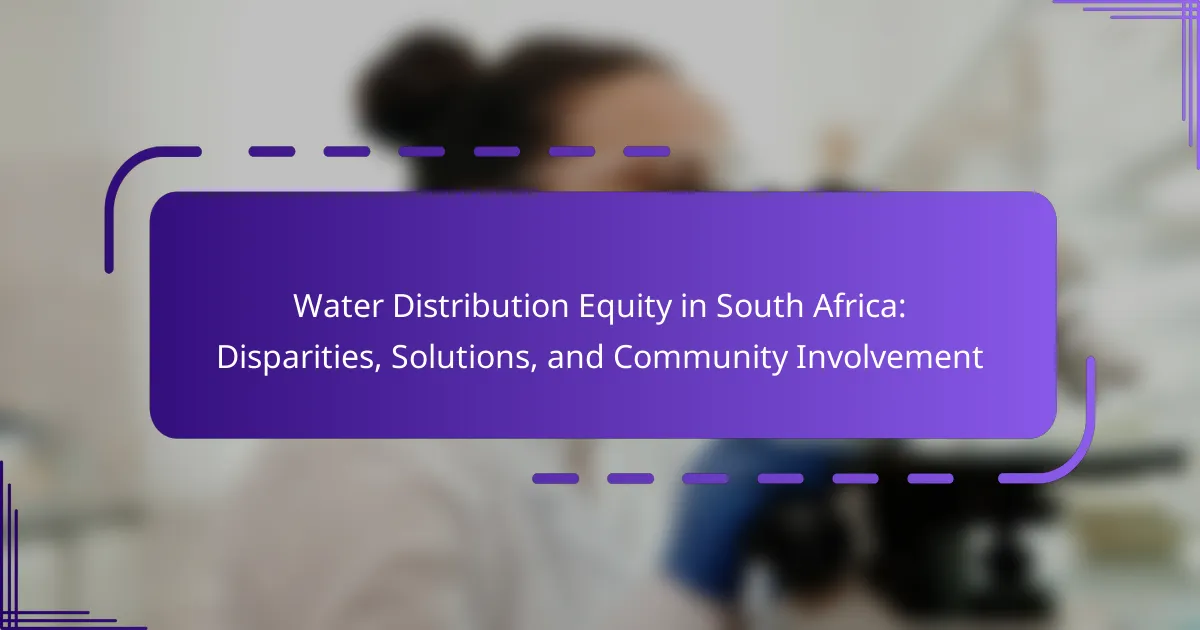
Water Distribution Equity in South Africa: Disparities, Solutions, and Community Involvement
Water Distribution Equity in South Africa focuses on the fair allocation of water resources to all communities, addressing historical disparities in access to clean water. Approximately 14% of households in the country lack basic water services, particularly in rural and underserved areas. The South African government recognizes water as a basic human right and is […]
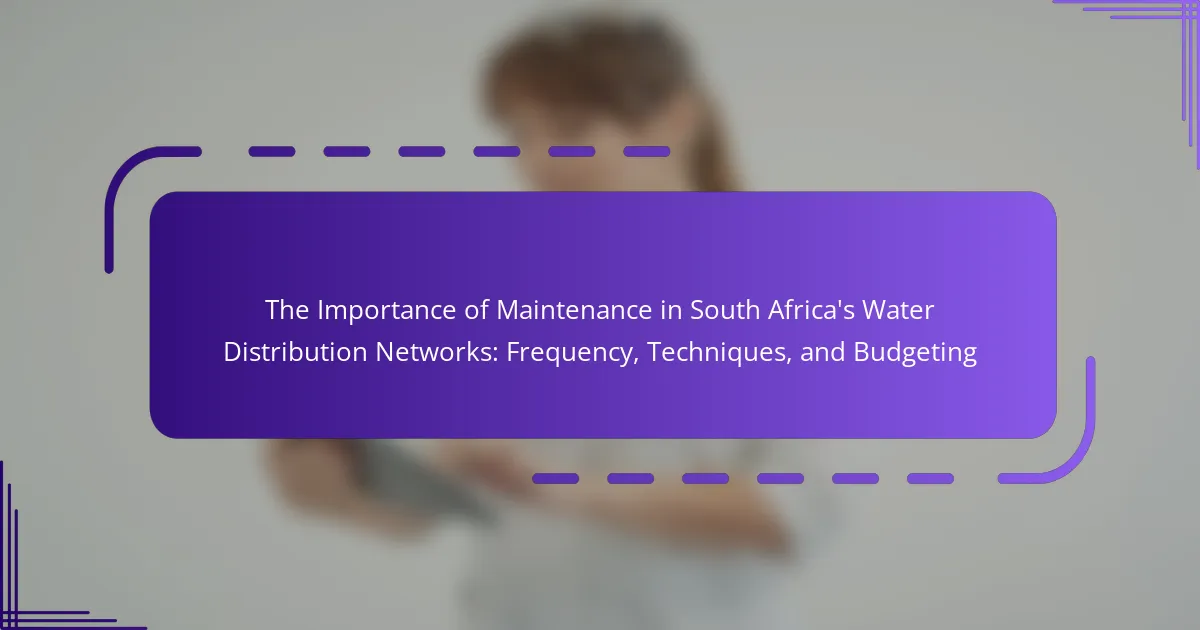
The Importance of Maintenance in South Africa’s Water Distribution Networks: Frequency, Techniques, and Budgeting
Maintenance in South Africa’s water distribution networks is essential for ensuring reliable access to clean water and preventing significant water loss due to leaks and pipe bursts. It is estimated that up to 40% of treated water is lost within the distribution system, highlighting the need for effective maintenance practices. Techniques such as leak detection, […]
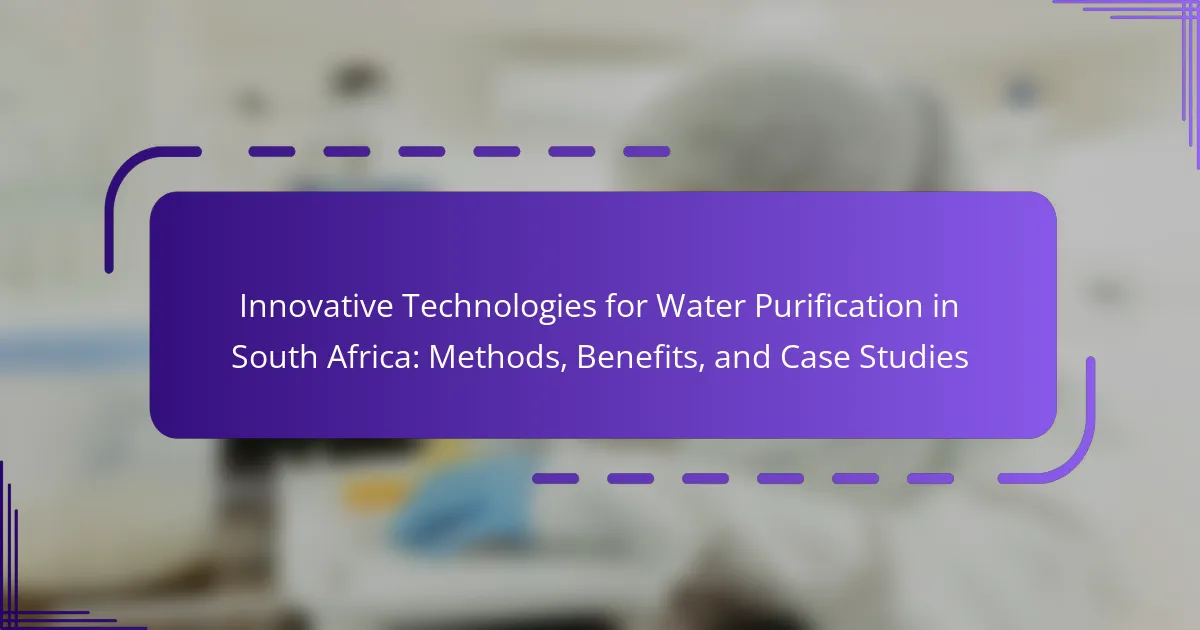
Innovative Technologies for Water Purification in South Africa: Methods, Benefits, and Case Studies
Innovative technologies for water purification in South Africa focus on methods such as membrane filtration, solar water disinfection, and advanced oxidation processes. These technologies aim to address critical water scarcity and quality issues, with increasing adoption in both rural and urban settings. Key challenges include high initial costs, limited financial resources, and technical expertise, which […]
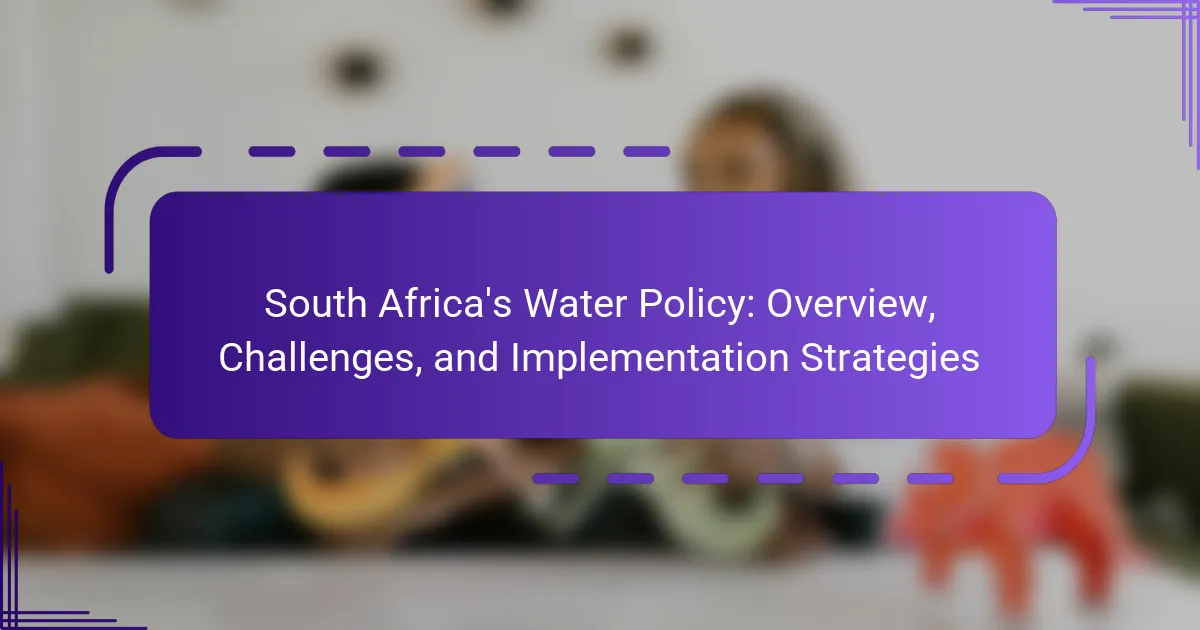
South Africa’s Water Policy: Overview, Challenges, and Implementation Strategies
South Africa’s Water Policy aims to ensure equitable access to water resources while prioritizing sustainable management of this finite resource. Guided by the National Water Act of 1998, the policy emphasizes integrated water resource management and community participation. It addresses historical inequalities in water distribution and aims to protect water resources from pollution and over-extraction. […]
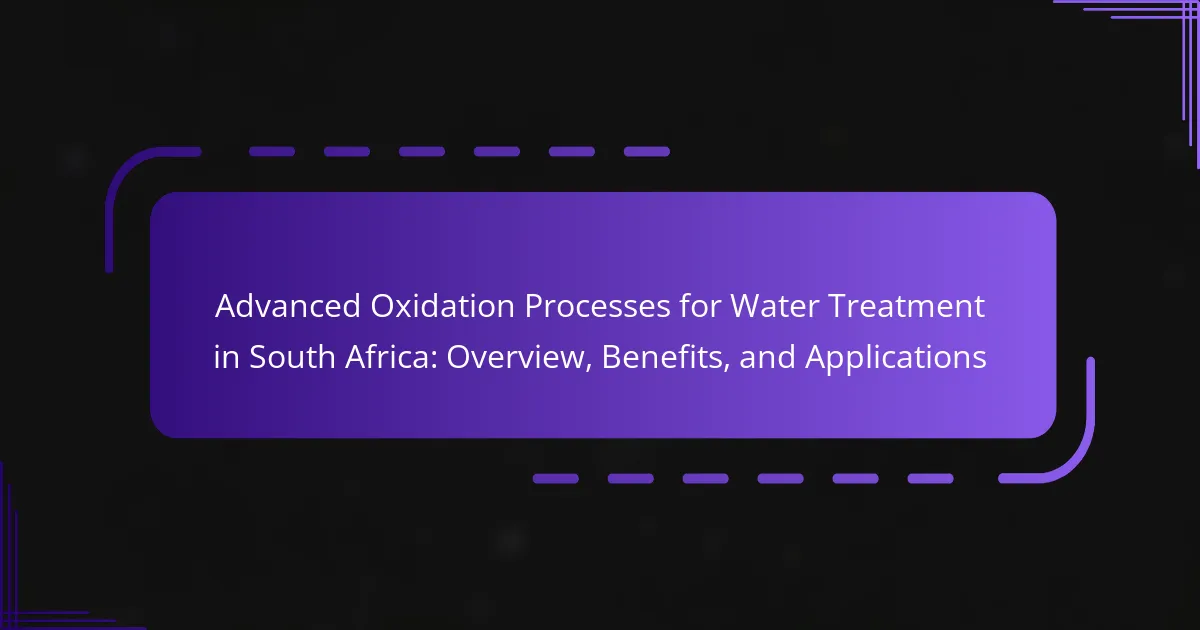
Advanced Oxidation Processes for Water Treatment in South Africa: Overview, Benefits, and Applications
Advanced Oxidation Processes (AOPs) are innovative water treatment technologies that utilize strong oxidants, such as ozone and hydrogen peroxide, to effectively remove contaminants from water through the generation of hydroxyl radicals. AOPs have demonstrated high removal rates for various pollutants, making them particularly suitable for treating wastewater and industrial effluents. However, the implementation of AOPs […]
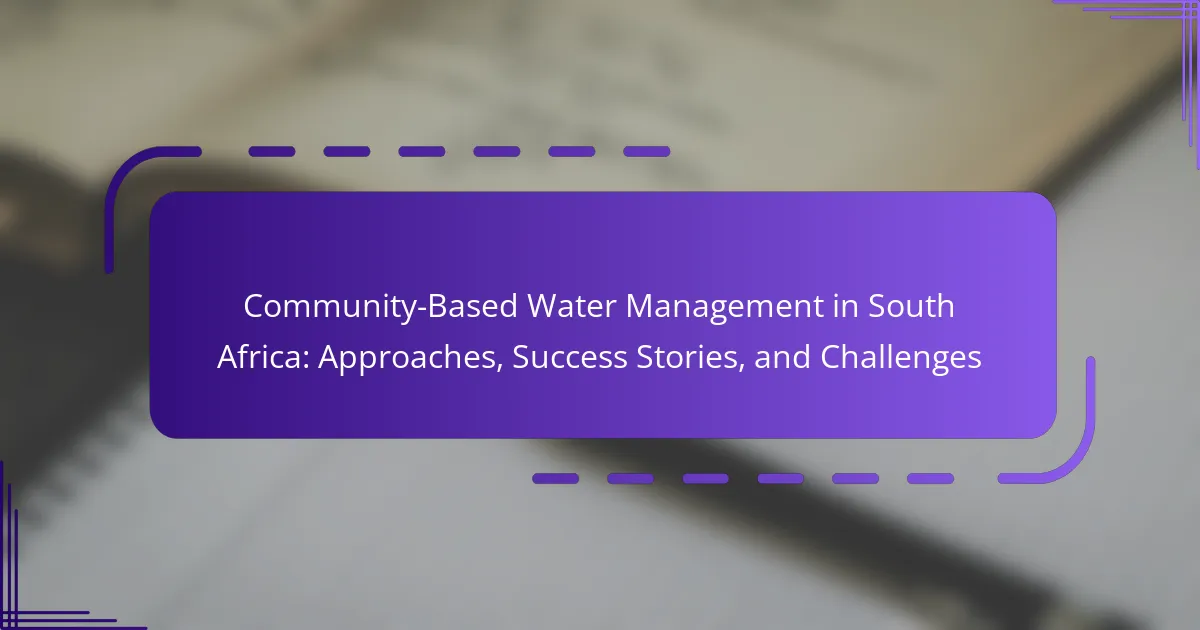
Community-Based Water Management in South Africa: Approaches, Success Stories, and Challenges
Community-Based Water Management in South Africa is a participatory approach that involves local communities in the decision-making processes related to water resource management. This method aims to empower communities and enhance sustainable practices by incorporating local knowledge and needs. The article outlines various approaches used in this management strategy, including participatory planning, capacity building, and […]
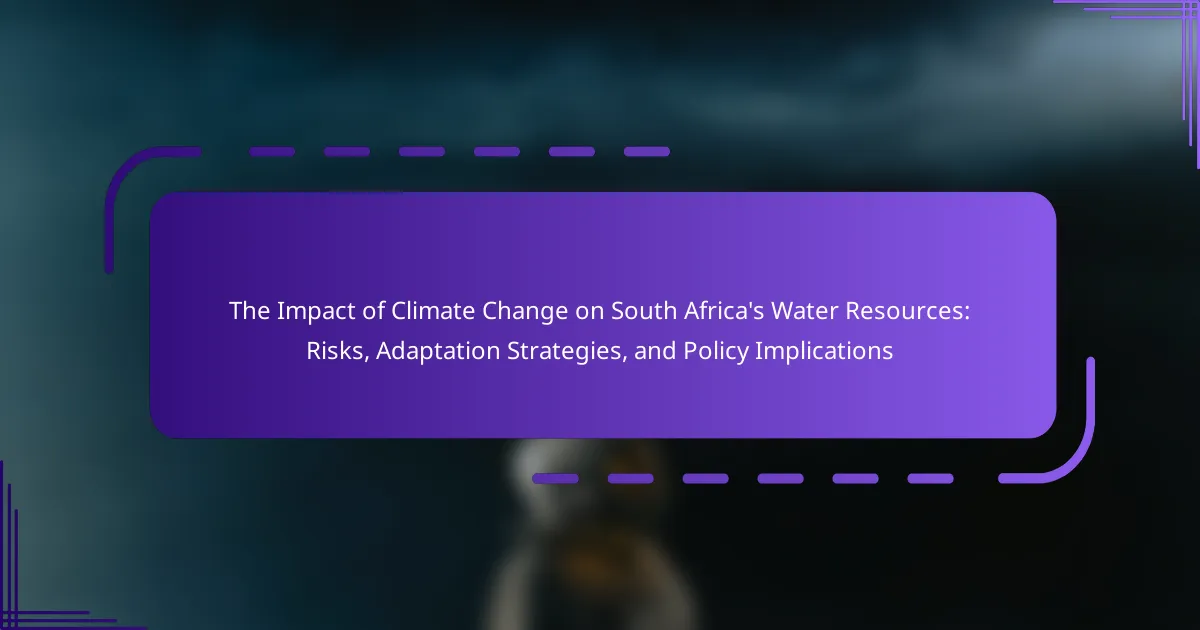
The Impact of Climate Change on South Africa’s Water Resources: Risks, Adaptation Strategies, and Policy Implications
Climate change is significantly affecting South Africa’s water resources, leading to increased temperatures and altered precipitation patterns that reduce water availability. The frequency and severity of droughts are rising, impacting both surface and groundwater supplies, which poses challenges for food security and ecosystems dependent on water. Adaptation strategies, such as improved water management practices, enhanced […]
